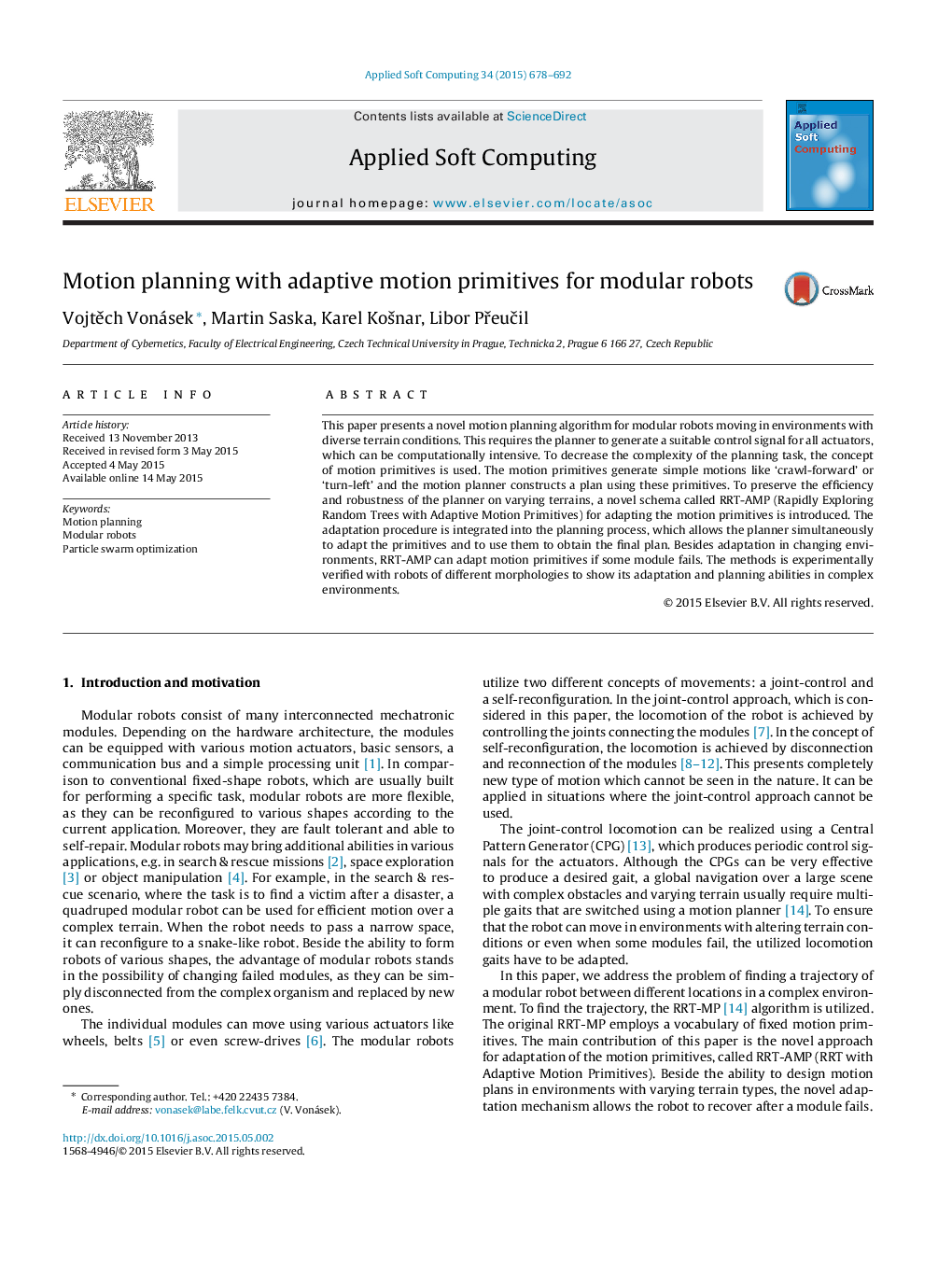| Article ID | Journal | Published Year | Pages | File Type |
|---|---|---|---|---|
| 494976 | Applied Soft Computing | 2015 | 15 Pages |
•Motion planning for modular robots equipped with motion primitives in complex environments.•The motion primitives are modeled using a Central Pattern Generator.•Novel method for adaptation of the motion primitives based on particle swarm optimization is proposed.•We demonstrate performance of the proposed complex of motion planning with adaptable primitives in numerous scenarios.
This paper presents a novel motion planning algorithm for modular robots moving in environments with diverse terrain conditions. This requires the planner to generate a suitable control signal for all actuators, which can be computationally intensive. To decrease the complexity of the planning task, the concept of motion primitives is used. The motion primitives generate simple motions like ‘crawl-forward’ or ‘turn-left’ and the motion planner constructs a plan using these primitives. To preserve the efficiency and robustness of the planner on varying terrains, a novel schema called RRT-AMP (Rapidly Exploring Random Trees with Adaptive Motion Primitives) for adapting the motion primitives is introduced. The adaptation procedure is integrated into the planning process, which allows the planner simultaneously to adapt the primitives and to use them to obtain the final plan. Besides adaptation in changing environments, RRT-AMP can adapt motion primitives if some module fails. The methods is experimentally verified with robots of different morphologies to show its adaptation and planning abilities in complex environments.
